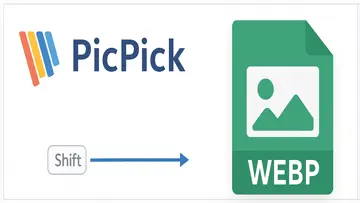Editor’s Review of Haskell FFI Bindings to syslog(3) by Peter Simons
The Haskell FFI (Foreign Function Interface) bindings to syslog(3) created by Peter Simons provide a powerful tool for developers looking to interface Haskell applications with system logging capabilities. This library leverages Haskell’s strengths while allowing access to the system-level logging mechanisms available on UNIX-like operating systems. Below, we will delve into the features, installation, usage, and benefits of this library, helping you understand its significance in Haskell programming.
Key Features
- Direct Access to System Logs: The bindings provide a straightforward way to send log messages directly to the system logger, utilizing established logging facilities.
- Flexible Logging Levels: Users can specify various logging levels such as debug, info, notice, warning, error, critical, alert, and emergency, allowing for fine-tuned control over message importance.
- Support for Various Identifiers: The library allows the use of different program identifiers (ident) when logging, making it clear which program the logs are originating from.
- Asynchronous vs. Synchronous Logging: Implements options for both synchronous and asynchronous logging, catering to different application needs and performance requirements.
- Haskell Type Safety: Maintains Haskell's type safety principles while interacting with system-level APIs, reducing the likelihood of runtime errors related to incorrect parameter types.
Installation
The installation of Haskell FFI bindings to syslog(3) is straightforward for users familiar with Haskell's package management ecosystem. Here’s how you can get started:
- Prerequisites: Ensure that you have GHC (Glasgow Haskell Compiler) installed along with Cabal (the build system for Haskell).
- Using Cabal:
You can add the library as a dependency in your project’s .cabal file or install it directly using Cabal with the following command:
cabal install syslog-ffi
Basic Usage
After installation, using the library is simple and intuitive. Here’s a brief code snippet that demonstrates basic usage:
import System.Log.Syslog
main :: IO ()
main = do
openlog "MyHaskellApp" [LogPID] LOG_USER
syslog LOG_INFO "This is an information message."
syslog LOG_ERR "This is an error message."
closelog
This example showcases how easily developers can open a connection to the syslog service, send messages at different severity levels, and close the connection afterward. The functions provided by this library are well-documented and conducive to efficient programming.
Error Handling
Error handling is crucial in any software component. The Haskell FFI bindings to syslog(3) liberate users from tedious error-checking by offering exception handling through standard Haskell practices. Common logging-related errors, such as failure to open a connection or invalid parameters passed to logging functions, are well-managed within this framework.
Performance Considerations
The performance of any logging utility can significantly impact application efficiency. This library is designed with performance in mind. It utilizes appropriate buffering and asynchronous techniques where needed, aiming not to block your application during high-volume logging situations.
Documentation and Support
An essential aspect of any software library is the quality of documentation. Peter Simons has provided thorough documentation for the bindings, which covers installation, configuration options, function usage examples, and more. This comprehensive guide ensures that developers of all skill levels can efficiently integrate logging functionality into their applications.
Use Cases
- Web Applications: Incorporating frequent log entries for tracking user actions and system events.
- Server-Side Programs: Maintaining operational logs for monitoring server health and activity.
- Background Processes: Keeping track of job completion states or failures in daemons and long-running tasks.
Sustainability and Community Contributions
The Haskell community actively contributes to libraries like this one. Regular updates ensure compatibility with new versions of GHC and evolving best practices in Haskell programming. Users can also participate by reporting issues or contributing enhancements through pull requests on platforms like GitHub.
The Haskell FFI bindings to syslog(3) by Peter Simons emerge as a valuable resource for developers needing robust logging functionality in their applications. By leveraging system-level capabilities with the elegance of Haskell’s type system and functional programming principles, this library strikes an excellent balance between ease-of-use and power. Whether building desktop applications or large-scale server environments, utilizing these bindings ensures log messages are handled efficiently in accordance with modern development practices.
개요
Haskell FFI bindings to syslog(3) 범주 개발 Peter Simons개발한에서 오픈 소스 소프트웨어입니다.
Haskell FFI bindings to syslog(3)의 최신 버전은 현재 알려진. 처음 2010-06-06에 데이터베이스에 추가 되었습니다.
다음 운영 체제에서 실행 되는 Haskell FFI bindings to syslog(3): Windows.
Haskell FFI bindings to syslog(3) 하지 평가 하고있다 우리의 사용자가 아직.
최신 리뷰
|
|
KMPlayer
Windows 및 Mac을 위한 강력한 멀티미디어 플레이어 |
|
|
Windows PC Health Check
Windows PC 상태 검사로 PC를 원활하게 실행하십시오! |
|
|
SAMSUNG USB Driver for Mobile Phones
삼성 휴대폰을 위한 효율적인 연결 솔루션 |
|
|
Epic Games Launcher
Epic Games Launcher로 Epic Games의 힘을 발휘하십시오 |
|
|
WPS Office
WPS Office: 모든 요구 사항을 충족하는 다용도 오피스 제품군 |
|
|
Adobe Photoshop
최고의 사진 편집 소프트웨어: 어도비 포토샵 리뷰 |
|
|
UpdateStar Premium Edition
UpdateStar Premium Edition으로 소프트웨어를 최신 상태로 유지하는 것이 그 어느 때보다 쉬워졌습니다! |
|
|
Microsoft Edge
웹 브라우징의 새로운 표준 |
|
|
Microsoft Visual C++ 2015 Redistributable Package
Microsoft Visual C++ 2015 재배포 가능 패키지로 시스템 성능을 향상시키십시오! |
|
|
Google Chrome
빠르고 다재다능한 웹 브라우저 |
|
|
Microsoft Visual C++ 2010 Redistributable
Visual C++ 응용 프로그램 실행을 위한 필수 구성 요소 |
|
|
Microsoft Update Health Tools
Microsoft Update Health Tools: 시스템을 항상 최신 상태로 유지하세요! |





